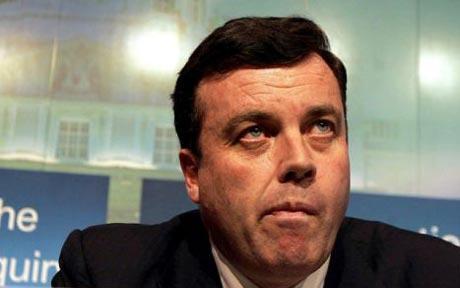Is there anyone else who can run the country?

There is a sense of apprehension now about how our country is being run that I don't recall having witnessed before, writes Vincent Browne.
Yes, we have often been infuriated by the ineptitude of governments, by the inequity and unfairness of so much they did, by the spectacular wastage of public funds.
However, it's different now - and very alarming.
There is a sense that those in power might bring down the whole show, that in this moment of crisis there is no one in charge who knows what they are doing or where we are going.
Brian Lenihan was on Morning Ireland on Thursday.
This is Lenihan, whose impressive presence as Minister of Finance was the only shred of credibility the government possessed.
He undid that credibility bit by bit last Thursday, and it was the ''so far'' phrase that started it.
He had said in 2008 that the Irish bank bailout was the most cost-free of all the bank bailouts ''so far''. Is it at all plausible that by ''so far'' he meant it could all go wrong? No way.
Any rational person hearing that would have thought the ''so far'' had meant that there might emerge even less costly bailouts.
On Thursday's radio show, and at the press conference afterwards, he sounded more and more just like those familiar Fianna Fáil ministerial hacks mouthing familiar and oh-so-tiresome inanities.
The sudden realisation that Lenihan doesn't know what he is doing either - on top of the shock of the fresh acknowledgment that the bank bailout will cost more than €50 billion - caused a sense of alarm about the government on a far greater scale than usual.
How ridiculous it was, that confident assurance on September 30, 2008,when Lenihan was inaugurating the bank guarantee: ''The terms and conditions on which the guarantee is provided will ensure the taxpayer gets value for money."
And the assurances he gave when introducing the bill to nationalise Anglo Irish Bank on January 20, 2009: ''The government is determined to protect the taxpayers' interests by putting clear blue water between the new Anglo Irish Bank and the unacceptable behaviour that has gone before." And: ''Allied Irish Bank is fundamentally sound and solvent."
RTE switched over to the Dáil from Lenihan's press conference, and there on his feet was the Taoiseach-in-waiting, Enda Kenny.
That morning's Irish Times had shown that Kenny's satisfaction rating was 25 per cent, and his dissatisfaction rating was 59 per cent.
The Irish Times published a chart of the party leader satisfaction levels from 2003,which showed that, from the last election in May 2007, his satisfaction level has been in progressive decline.
Kenny started off his intervention on Thursday morning impressively: ''Ireland wakes up this morning to another national crisis. People find themselves owning another bank when most people only wish to own their own homes."
From then on, it was blather all the way for three, four, five minutes, to the evident excruciation of Fine Gael colleagues sitting around him.
There are dangerous days ahead. By early 2011, we had better have got our act together enough to convince the financial whizz kids that we know what we are doing with the banks and that there is a credible four-year budget in the offing to deal with the deficit.
But how can there be a four year budget perspective when this government is on its way out - sometime next year, if not by the end of this year?
And what if it emerges over the next few months that the bank bailout will cost far more than has been admitted so far?
The big trouble?
The cost of borrowing may be up to 10 per cent, which would do us in.
The best of the plausible options would be an election now, a new government under someone other than Kenny (either Fine Gael gets rid of him or Labour refuses to serve under him); the new government produces the four-year plan, even though this will screw the less wealthy section of the population into the ground, as Fianna Fáil would do if they remain in office.
The option whereby a new government would recognise that we are still a rich country and that we can resolve our difficulties by getting the richer element of the population to take all or most of the pain is, regrettably, not a plausible option.
But there won't be an election now - even though it is clearly in the national interest - because Fianna Fáil don't want to surrender office until they are dragged way from their Mercs and their drivers (cost per year: €200,000; total cost of cabinet ministers per year: €500,000).
The Greens actually think their continuance in office is in the national interest (and some still claim the Greens aren't off the wall!).
Come February, March or April next year, when the bond markets turn out not be in the least impressed, we will quietly surrender our sovereignty - or what is left of it.
